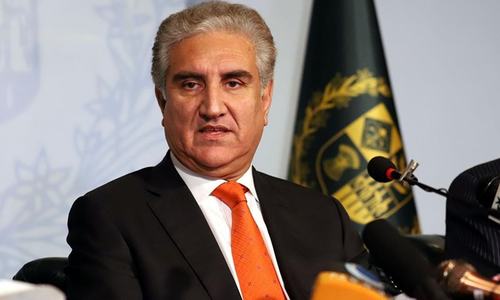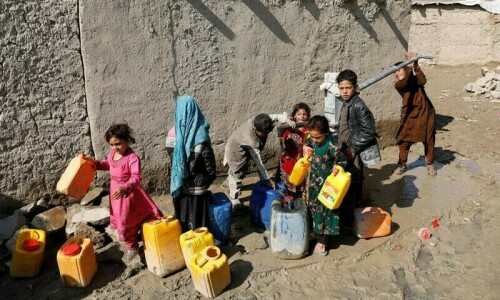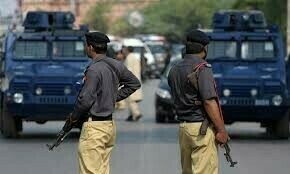WASHINGTON: As the United States hopes to reach a peace agreement with the Taliban before the Afghan elections in July, PPP chairman Bilawal Bhutto-Zardari has urged Pakistan to be ready to protect its interests in the region.
In his speech at the US Institute for Peace (USIP) on Friday afternoon, Mr Bhutto-Zardari noted that President Donald Trump’s recent tweets and statements on Afghanistan indicated Washington’s desire to leave the war-torn country. He also quoted from a recent New York Times editorial which interpreted the ongoing US-Taliban talks as “negotiated capitulation by the international forces”.
The possibility of a unilateral US withdrawal from Afghanistan has created a new wave of uncertainty in the region, “which poses yet another challenge to Pakistan,” he warned. “It is not difficult to visualise the consequences of capitulation.”
Mr Bhutto-Zardari addressed this issue at a meeting with Washington-based Pakistani journalists as well, urging Islamabad to be ready to deal with both positive and negative consequences of a US withdrawal.
Minutes after his press talk, US Special Representative for Afghanistan Reconciliation Zalmay Khalilzad, also spoke at USIP where he declared that the United States was hoping to reach a peace agreement with various factions, including the Taliban, before the Afghan presidential elections in July this year.
Khalilzad acknowledges role played by Islamabad towards reconciliation
“It will be better for Afghanistan if we could get a peace agreement before the election, which is scheduled in July,” Mr Khalilzad said, adding that there remained “a lot of work” to do.
“We are after a peace agreement, not a withdrawal agreement. A peace agreement can allow withdrawal,” he said. But he also admitted that the “elections make the peace agreement more complicated”.
Mr Khalilzad, who acknowledged that Pakistan had released a senior Taliban leader Mullah Baradar on his request to facilitate the peace talks, said that Pakistan could play a very crucial in the reconciliation process with the Taliban.
Noting that Mullah Baradar, now based in Doha, was already facilitating the US-Taliban talks, the US envoy said that his role had also been recognised by former Afghanistan president Hamid Karzai and his successor President Ashraf Ghani.
“There has been a positive change” in Pakistan’s attitude in recent times, he said. “The release of Mullah Baradar, which was my request...they (Pakistan) accommodated that, because Mullah Baradar has a reputation of being more open, more pro-peace,” said the top American envoy who is leading the Trump Administration’s efforts to have peace talks with the Taliban.
“Pakistan favours inter-Afghan dialogue including between the Taliban and the government. So, the release of Baradar is a very positive thing,” he said.
“We always would like Pakistan, like other countries to do more, but we appreciate what they have done so far and I have indicated (as did) Secretary (of State), (Mike) Pompeo and the president that we want to have good relations with Pakistan, better relations with Pakistan,” he said.
Mr Bhutto-Zardari said that statements emphasising Pakistan’s role in the Afghan reconciliation process indicated a change in Washington’s attitude towards Islamabad.
But he stressed the need for Pakistan to mark the difference between “reconciliation and appeasement” and “reconciliation and capitulation”.
He said that Pakistan should avoid both, appeasing the Taliban or capitulating its stance on Afghanistan under external pressure.
“Reconciliation is not assuring the enemy and agreeing to their demands but when all stakeholders realise the error of their ways, accept responsibility and reach an understanding after acknowledging the mistakes,” he said.
A peace deal that satisfied only one stakeholder by accepting its demands “would be destructive for Pakistan and the South Asian region,” the PPP chairman said.
Published in Dawn, February 10th, 2019
















































